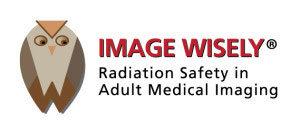One in nine men is diagnosed with prostate cancer at some point in life. That’s why regular PSA (prostate specific antigen) screenings and rectal exams are so important. If your doctor feels an abnormality or you have an elevated PSA level, your doctor may refer you to Princeton Radiology for further evaluation. Patients who have already had a biopsy or have already been diagnosed with prostate cancer also benefit from the added precision provide by Princeton Radiology’s targeted MRI scan.
Accurate diagnosis leads to better treatment
Princeton Radiology offers the right tool and the right team to get the answers you and your doctor need. Our unique prostate MRI is performed on state-of-the-art equipment and combines two advanced technologies: high resolution detailed pictures produced by the MRI and sophisticated computerized modeling of blood flow to your prostate gland. The result: a three-dimensional color map of the prostate gland that displays any potential tumor sites.
More targeted biopsy, staging and treatment planning
If the images show areas of suspicion, we work with your doctor to formulate the best next step. If necessary, our team of board-certified interventional radiologists can perform a targeted biopsy using the MRI images as a guide. Because of the precise targeting, fewer biopsy samples are needed for accurate diagnosis. That means less risk of infection, bleeding or pain, and a shorter recovery time. This is an outpatient procedure that typically requires no sedation, and is fast, relatively painless and minimally invasive.
If you have already had a prostate biopsy and a confirmed diagnosis, Princeton Radiology’s prostate MRI can be used for more accurate staging, treatment planning and after-treatment monitoring.
What will the exam be like?
Our staff will explain every step of the procedure and ensure you are comfortable. MRI uses a powerful but harmless magnetic field and radio frequency pulses to produce images of the inside of your body. During the MRI, you will lie on the exam table as it enters a magnetic field. You will hear repeated drum-like knocking sounds as the scans are recorded. These sounds can be quite loud, but they are normal. You will be given the option of listening to satellite radio during your scan to make you more comfortable.
Prostate MRI Locations
This exam is available at the following locations:
Patient Prep
Brochures




